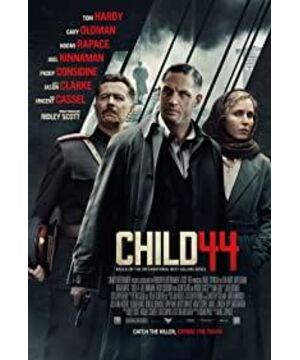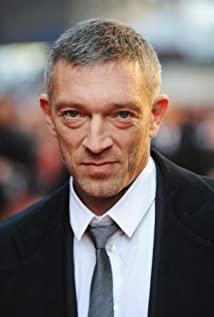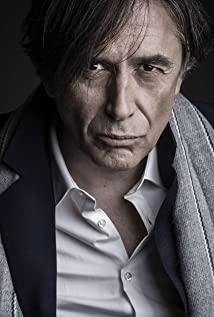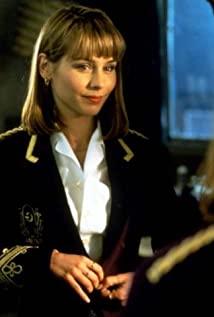Although the name of "Child 44" is faithful to the original, its meaning can only be understood after watching the movie, so what does the 44th child mean? The clues given in the film: The plot confessed that 43 children have died, and the police sentenced them to "accidents" or "sloppy conclusions." The children are neglected lives. Until the 44th child's body was exposed, the police's attitude remained unchanged, because the government's position has never recognized that there are homicides in the perfect society, which triggered the actor Leo's belief in state power to waver.
Leo changed from loyalty to suspicion. It was the emphasis on children and the manifestation of humanity. Children are hope and future in the Soviet society, and the film also repeatedly has non-case child plots. For example, the young Leo at the opening was affirmed and cultivated by the adults, and the two girls were saved while working for National Security, and the end echoed adoption.
When reading the introduction, I also noticed that there were complaints in the short comment: the story thread is too many and urgent, not in-depth and other shortcomings. This is the same but understandable. For example, the film introduces a few plots at the beginning, and then suddenly turns to the next scene. In my opinion, the foreshadowing is mainly to show two points: 1. The darkness of the bossy era; 2. The relationship between the characters also affects the subsequent humanity decisions.
Simple opportunities have shaped Leo's "war hero" (thinking of "Flags of Fathers"), and Soviet civilians can know and admire him; In the era, "treason" is like a strong shackles. The people need to protect themselves and breathe alive in an atmosphere of white terror.
Then it is about the attitude towards life and the determination of the safety of the family. Leo still maintains a sober humanity in the process of carrying out the national "mission". He did not privately impose the death penalty on the suspect, which is in contrast to the execution of civilians by the villain Vasili. Leo would hesitate to sacrifice his wife Raisa for one life for three lives, but immediately decided to give up when he heard two lives for three lives. When Vasili threatened Alexe, there were nearly ten members in his family. For Alexe, it is hard to argue that betraying his friend Leo's two lives is rational.
Regarding the main line of chasing the murderer, Leo has to avoid power obstruction while collecting clues. In the process, it depends on the acquiescence of General Nesterov, otherwise Leo can hardly move. General Nesterov is a good person who can avoid trouble and not lose humanity. Because their family also has children, in the end Leo defended General Nesterov and protected his family. The train track has appeared on the screen many times as an important scene and crime scene, but I am not satisfied with the interruption of the fight in the carriage. Why is Raisa a female man who fights so hard? Finally, Leo thought that using the duty roster to screen suspects was a clever way, and the story finally connected the protagonist and the murderer.
The genre of this film can be classified as suspense and crime, but after watching it, I think it is still regarded as a reasoning film that took place in the Soviet Union Stalin period. It is similar to the Japanese showa period reasoning drama of Matsumoto Kiyohashi that I often watch. It is a simple case. Create a skeleton, telling about the good and evil of human nature plus the turbulent social background.
Of course, this is a Soviet background film made by a Western country. I can't judge how dark the content is. But watching a group of Soviets who speak English fluently makes me a little drunk.
(2015.05.07 HK UA MegaBox)
View more about Child 44 reviews











